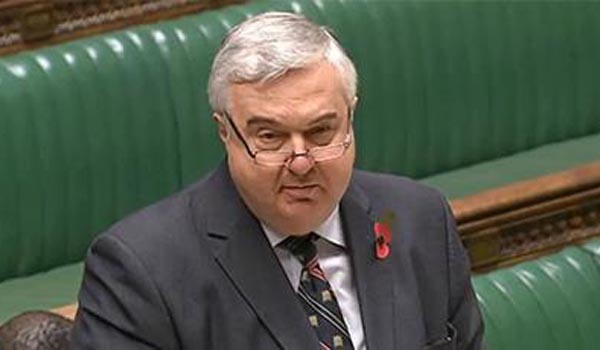Minor criminals to plead guilty online as Government seeks efficient justice
Low-level offenders will be able to resolve cases entirely on the internet in a push to deliver swifter outcomes.
Low-level offenders will be able to resolve cases entirely on the internet in a push to deliver swifter outcomes. New powers brought in under the proposed Prisons and Courts Bill will allow people convicted of non-imprisonable offences to plead guilty, accept convictions and pay penalties through a web-based portal. The Bill, unveiled by Justice Secretary Elizabeth Truss on Thursday (February 23), will also extend the use of virtual hearings and tighten prisons focus on rehabilitation. It also marks the end of a campaign by Ms Truss to close a loophole that enables domestic abusers to interrogate their victims in family courts. Justice Minister Sir Oliver Heald said: Britain has the best justice system in the world, but it should also be the most modern, because we have a vision for a justice system that truly works for everyone. Victims and the most vulnerable are at the centre of our changes, which will help deliver swifter and more certain justice for all. We want courts that are efficient and fit-for-purpose, with facilities across the entire estate that are modern, user-friendly, and work in favour of our hard-working and dedicated judges and magistrates. The online offender management system was put forward by MPs in a report released last September. It will cover minor offences, such as rail fare evasion or unlicensed fishing, and is intended to speed up the criminal justice process. The system mirrors the traffic penalty tribunal, which has already been transferred online and deals with 25,000 appeals on minor driving and parking offences each year. The ban on abusers cross-examining victims in family courts previously only existed in criminal courts. It follows an urgent review commissioned last month by Ms Truss, who described it as a humiliating and appalling practice. Compensation payments for whiplash claims will also be capped at a fixed rate potentially lowering insurance premiums for everybody. The second part of the Bill features a focus on prisons as a place of rehabilitation with the target of driving down the £15 billion annual cost of reoffending. The Bill sets in law that a key purpose of prisons is to reform offenders as well as punish them. Governors will be given control of education, employment and health budgets and will be held accountable for delivering in these areas. Their progress will be measured on league tables, which will be publicly available from August. Alongside this, powers have been proposed that would crack down on phone use in jails and enhance testing for psychoactive substances. More than 2,000 new senior roles are also to be created across the country and will be filled by serving prison officers. These positions, which include specialist mental health training, will have salaries up to £30,000. The new measures come amid rising violence in prisons and concern about the rate of suicide and self-harming. Government figures published last year revealed 6,360 prison staff were assaulted in the 12 months to September, and self-inflicted deaths hit a record 119. Ms Truss said: Prison is about punishing people who have committed heinous crimes, but it should be a place where offenders are given the opportunity to turn their lives around. I want our prisons to be places of discipline, hard work and self-improvement, where staff are empowered to get people off drugs, improve their English and maths and get a job on release. Our courts should be places where victims get the justice they deserve, and where our outstanding independent judiciary can flourish and focus on the cases that matter. Shadow Justice Secretary Richard Burgon said that the Bill simply fails to deal with the problems faced by prisons. He added: Prisons must reform offenders, but these proposals are an inadequate response to a serious situation.


